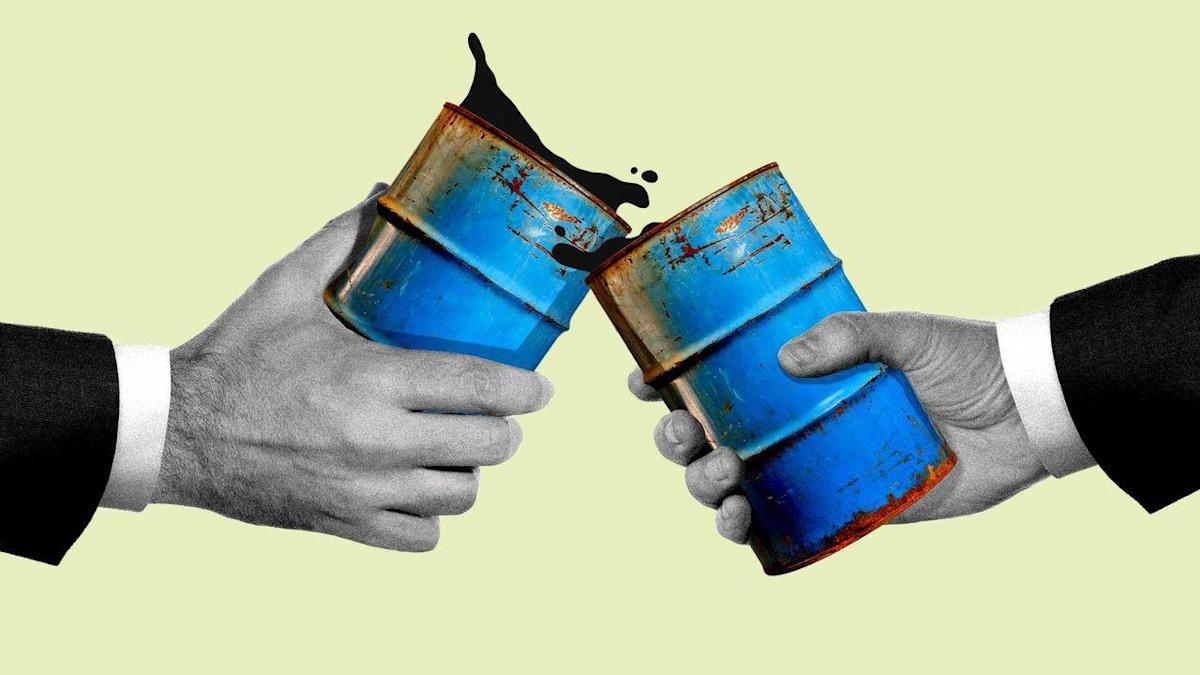
As President Biden confronts soaring energy costs, he’s looking for help from two entities he’s criticized for years: Big Oil and Saudi Arabia.
Why it matters: The president of the United States is placing part of his political fate into the hands of people who question his long-term intentions and have little incentive to help him, straining his options to contain energy prices. Another challenging option: a nuclear deal with oil-rich Iran.
Get market news worthy of your time with Axios Markets. Subscribe for free.
-
The White House is bracing for Russia’s invasion of Ukraine to send gasoline prices soaring, adding more pressure to the current 7.5% inflation rate.
-
While Biden isn’t adopting the old Republican “drill, baby, drill” mantra, he’s sending signals to oil companies that he wants their help to prevent prices at the pump from surging.
-
He’s also leaning on the Kingdom of Saudi Arabia — which he called a “pariah” during the 2020 presidential campaign — to increase its production.
-
“We’re working closely with major energy producers,” Daleep Singh, the deputy national security adviser for international economics, told reporters on Tuesday. “We can work with energy companies to surge their capacity to supply energy to the market, particularly as prices rise.”
The big picture: Throughout the campaign and his presidency, Biden has put the oil and gas industry on notice he expects it to cut carbon emissions.
-
On Day One, he issued an executive order to rescind permits for the Keystone pipeline and pledged to rejoin the Paris climate accords.
-
He’s targeted the industry with higher taxes and, in November, blamed it for surging prices at the pump, suggesting providers were making “significant profits off higher energy prices.”
-
He instructed the Federal Trade Commission to investigate potential illegal activity.
-
In December, though, the administration started to shift its rhetoric. Energy Secretary Jennifer Granholm called on U.S. oil producers to get their “rig counts up.”
Today, the oil industry says the administration is sending mixed messages.
-
“On the one hand, they are asking us to produce more oil and gas,” said Mike Sommers, president and CEO of the American Petroleum Institute.
-
“On the other hand, there are at least five policy areas where they have said the exact opposite, including just this weekend — announcing a new moratorium for on- and off-shore leases.”
In August, Biden officials began to call on Saudi Arabia and other OPEC countries to increase their oil production, which invited criticism from climate activists.
-
In September, national security adviser Jake Sullivan traveled to Saudi Arabia to have additional conversations and repeat the request to pump more oil.
-
But OPEC+ countries have been ignoring those calls.
-
Last week, Brett McGurk, the National Security Council’s Middle East coordinator, and the State Department’s energy envoy, Amos Hochstein, were in Riyadh for further discussion.
-
The Saudis haven’t indicated they plan to increase their production.
By the numbers: With war looming, the price of a barrel of oil has risen from $77 per barrel in early January to nearly $100.
-
The national average price of gas per gallon is $3.54, up from $2.64 a year ago, according to AAA.
-
The United States is still not back to pre-pandemic oil production levels; it pumped about 11.97 million barrels a day last year, down from 12.3 million in 2019.
The bottom line: A potential nuclear agreement with Iran, which has an estimated 85 million barrels stored at sea, may do more to lower the price of oil than any increased productions from the Saudis or U.S. companies.
-
“There’s not a drop of spare production capacity outside of OPEC+,” said Robert McNally, president of Rapidan Energy Group. “It’s wishful thinking.”
-
“The only real option that the Biden administration has to increase oil supply in the near term is signing an Iran deal and then convincing Saudi Arabia to produce more.”
Like this article? Get more from Axios and subscribe to Axios Markets for free.




